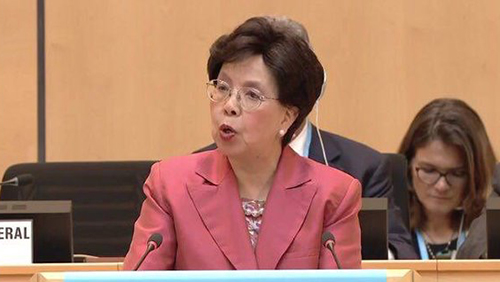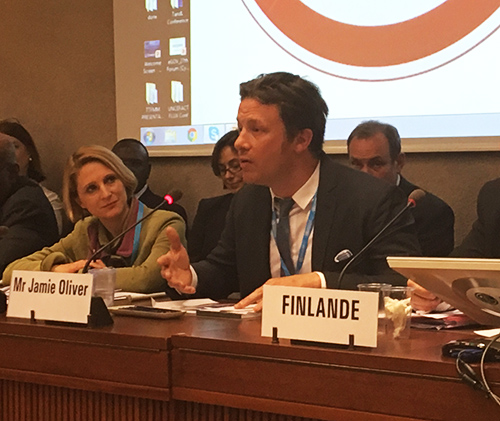The 69th World Health Assembly is underway this week in Geneva, with non-communicable diseases (NCDs) a more visible global health priority than ever before.
Addressing health leaders from 194 member states, World Health Organization Director-General Dr. Margaret Chan singled out tobacco as a leading driver of NCDs in her opening address.
“No country can hope to bring down the burden of non-communicable diseases in the absence of strong legislation for tobacco control.” And “Many countries are enforcing their legal right to mandate plain packaging on tobacco products.”
Indeed. Recent additions to use plain packaging on tobacco packs include France and the UK with several more European countries planning to do the same.

Dr. Chan also warned of three “slow motion disasters” facing the global health landscape that desperately need attention – climate change, antibiotic resistance and the rise of chronic NCDs as the leading killers.
“These are not natural disasters. They are man-made disasters created by policies that place economic interests above concerns about the well-being of human lives and the planet that sustains them.”
Chan also pointed to health successes for development goals – a 44% drop in maternal mortality and the 85% of tuberculosis cases that now are successfully cured.
NCDs were also at the top of the agenda at a side event with celebrity chef Jamie Oliver, focusing on the paradox of child malnutrition and child obesity.
“I’ve never been more depressed about child health – it frightens the life out of me. There is room for everyone, in business, in governments and communities to do better.”
Mr Oliver pointed to the success of Mexico’s soda tax as in helping reduce consumption, calling on more countries to follow their lead. Vital Strategies supported this effort with assistance on mass media campaigns and advocacy.

A panel event hosted by the NCD Alliance, was introduced by Josè Luis Castro, Vital Stategies CEO, and chaired by Richard Horton, Editor-in-Chief of The Lancet. The event focused on sustainable financing to address NCD health issues.
Panelist Suresh Kumar told the audience “Epidemics, Ebola, Zika get the headlines, NCDs break the bank.”.
Advocates agreed to the need to “shout louder” and “inject more energy” to ensure NCDs are at the top of the global health agenda. Curbing NCDs, Horton concluded, are not just a matter of much needed financing– its also an issue that has to be addressed from a political, ethical, and human perspective.